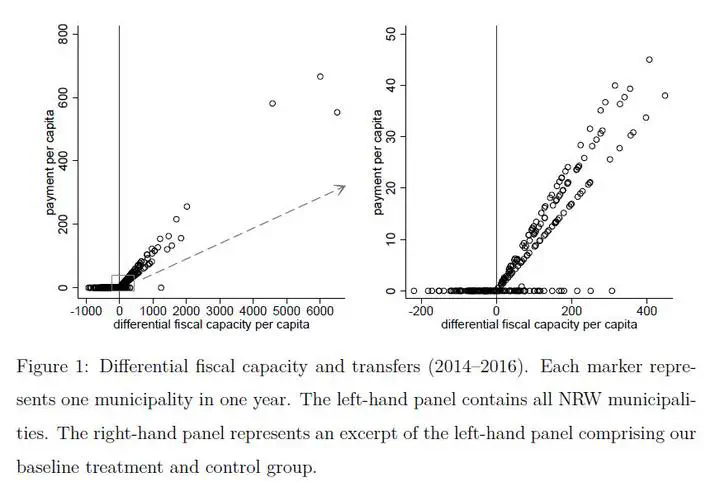Fiscal Policy Adjustments to Budget Shocks: Evidence from German Municipalities

Zusammenfassung
We study the fiscal policy reactions of municipalities in the German state of North Rhine-Westphalia to an unanticipated spending shock. The implementation of a horizontal transfer system led to additional contributions for selected municipalities. Using the quasi-random assignment, we examine whether these contributing municipalities adjust their tax setting behavior, respond by adapting expenditures, or incur debt in the short run. We find a sizable increase of net borrowing. This increase is even higher than the expansion of spending. Municipalities additionally refrain from increasing tax rates. The results point to delayed fiscal adjustments. We conclude that the design and the predictability of transfer systems have significant implications on the behavior of municipalities within decentralized systems.